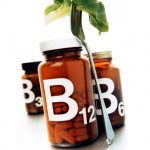
The American diet has changed drastically in the last fifty years. Although many tout the availability of pre-packaged foods, the longer shelf-life, and the more appealing appearance of foods as a positive step, essential nutrients like vitamin B-12 may be lost. Chemicals, additives, and the entire process in which food progresses as it travels from farm to table, strips it of the most useful vitamins and minerals each of our bodies need. But this is not the only reason so many of us suffer from a lack of B-12.
Recent research and a rash of new medical conditions have encouraged us to really look at what we are eating, and what is in our food. Many of us have decided to become vegan, and eliminate animal, fish, and dairy products from our diets. Although this process can be beneficial in some ways, veganism is widely know to cause vitamin B-12 deficiency since dairy, fish, and animal proteins are the main source of this vitamin in our diet.
As we age, the lowering of vitamin B-12 is common, and can be exacerbated by inadequate stomach acid. This acid is required to liberate B-12 from foods, and carry it throughout the body so it can be utilized most efficiently. Folks over fifty are the largest consumers of acid reducers, proton pump inhibitors, and other medications that reduce the amount of stomach acid. However, use of these pain relievers cause the reduction of the essential stomach acid, and therefore less B-12 availability.
Diabetes is on the rise, and the medications used to treat this common disease can affect how well your body absorbs vitamin B-12. Other conditions that can affect the availability and utilization of B-12 are gastritis, Chron’s disease, Celiac disease, pernicious anemia, and surgical removal of a portion of the stomach or small intestine, like bariatric surgery. Because vitamin B-12 is essential to cognitive and neurological functions of the body, a reduction can cause serious secondary conditions that left untreated, may become life threatening. Considered the “invisible epidemic” by a growing number of experts, vitamin B-12 deficiency is becoming more researched, and better treated. Because a lack of B-12 mimics several other conditions, low levels of vitamin B-12 are not an early consideration for many of us.
By far, the most common reason for B-12 deficiency is poor diet. Consuming less processed foods and eating more organic foods from local growers and farmers is the best way to maintain a healthy level of vitamin B-12. Making sure to enjoy a wide variety of foods is also essential, since the protein-bound B-12 utilizes this mechanism to travel throughout the body. Fruits, vegetables, fish, lean meats, and whole grains provide the greatest defense against a vitamin B-12 deficiency. Couple that with the knowledge of the importance of this hormone, and you have a great start on maintaining healthy levels of vitamin B-12. Adding a good quality vitamin B-12 supplement to your diet is an excellent way to ensure you are getting precisely what you need. Your health depends on it.




